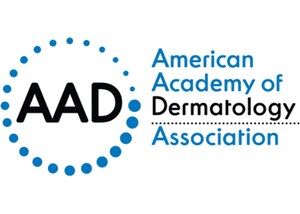
American Academy of Dermatology Issues Updated Position Statement on Vitamin D
No Safe Threshold for Sun or Indoor Tanning Exposure
SCHAUMBURG, Ill., Jan. 19, 2011 /PRNewswire-USNewswire/ -- The American Academy of Dermatology (Academy) has updated its position statement on vitamin D based on the results of a review of the increasing body of scientific literature on this vitamin and its importance for optimal health recently conducted by the National Academy of Sciences Institute of Medicine (IOM).
The Academy continues to recommend that the public obtain vitamin D from a healthy diet that includes food naturally rich in vitamin D, foods and beverages fortified with vitamin D, and/or dietary supplements. The Academy reaffirmed its position that vitamin D should not be obtained from unprotected exposure to ultraviolet (UV) radiation from the sun or indoor tanning devices, as UV radiation is a known risk factor for the development of skin cancer.
The IOM reviewed the scientific literature examining the possible relationship between vitamin D and certain types of cancers, neurologic disease, infectious disease, autoimmune disease and cardiovascular disease. Based on review of more than 1,000 studies and expert and stakeholder testimony, the IOM concluded that while the evidence for associating vitamin D levels with bone health was strong, the evidence for other conditions was inconsistent, inconclusive and insufficient to inform nutritional requirements.
The Academy's position statement reflects the IOM's findings, including the vitamin D blood level deemed adequate and safe for the human body (20 ng/ml), and the Recommended Dietary Allowance (RDA) for calcium and vitamin D intake to support skeletal health. The Academy noted that the RDAs for vitamin D reflect an assumption of minimal sun exposure.
The Academy's updated position statement also asserts that there is no scientifically proven, safe threshold of sun or indoor tanning device exposure that allows for maximum vitamin D synthesis in the skin without increasing the risk of skin cancer.
"The IOM's review of the scientific evidence about vitamin D supports the Academy's long-standing recommendation on safe ways to get this important vitamin – through a healthy diet which incorporates foods naturally rich in vitamin D, vitamin D-fortified foods and beverages, and vitamin D supplements," stated dermatologist William D. James, MD, FAAD, president of the American Academy of Dermatology. "Unprotected exposure to UV radiation from the sun or indoor tanning is not safe. Individuals who intentionally expose themselves to UV radiation for vitamin D are putting their health at risk for developing skin cancer."
The Academy encourages those with concerns about their levels of vitamin D to discuss options for obtaining sufficient dietary or supplementary sources of vitamin D with their physician.
The Academy continues to recommend that individuals protect themselves from UV exposure when outdoors, such as seeking shade whenever possible, wearing sunscreen and covering up with a wide-brimmed hat, long sleeves, pants and sunglasses. Also, the Academy urges the public to avoid tanning beds.
For more information about skin cancer, please visit the SkinCancerNet section on www.skincarephysicians.com, a website developed by dermatologists that provides the public with up-to-date information on the treatment and management of disorders of the skin, hair and nails.
Headquartered in Schaumburg, Ill., the American Academy of Dermatology (Academy), founded in 1938, is the largest, most influential, and most representative of all dermatologic associations. With a membership of more than 16,000 physicians worldwide, the Academy is committed to: advancing the diagnosis and medical, surgical and cosmetic treatment of the skin, hair and nails; advocating high standards in clinical practice, education, and research in dermatology; and supporting and enhancing patient care for a lifetime of healthier skin, hair and nails. For more information, contact the Academy at 1-888-462-DERM (3376) or www.aad.org.
Editor's Notes:
- The position statement may be viewed on the Academy website under the Featured Items section: www.aad.org.
- The position statement reflects the best available data at the time the report was prepared.
SOURCE American Academy of Dermatology






Share this article